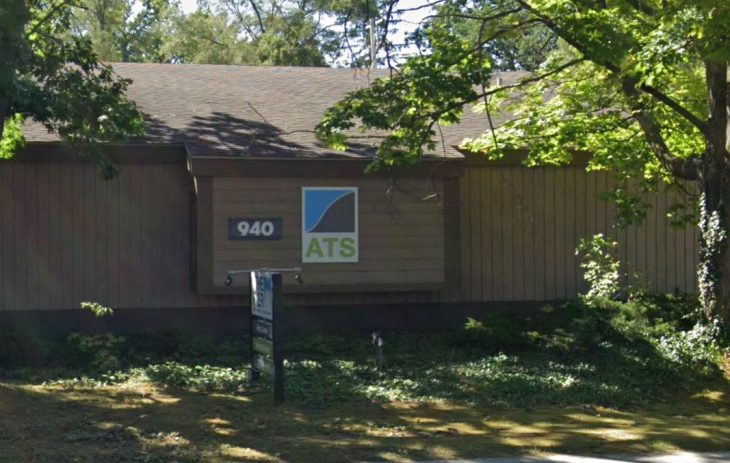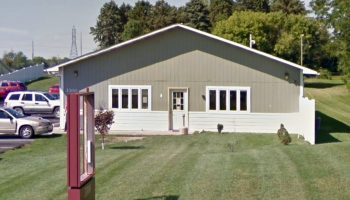About Addiction Treatment Services PIER
Most people begin their healing from substance use disorders with medically supervised detoxification. Detox is where the body starts to let go and hope begins to return. The P.I.E.R. (Promoting Integrated & Engaged Recovery) provides a welcoming and structured therapeutic environment for supervised withdrawal management. This short-term stabilization program is part of the substance use care continuum provided by Addiction Treatment Services (ATS).
ATS has been providing addiction recovery for residents of Traverse City in Northern Michigan for over 40 years via Medicaid and the Healthy Michigan Plan. The P.I.E.R. is located in central Traverse City near downtown, just a few blocks from the Boardman River and Traverse Area District Library. The location is southeast of Clinch Park.
The facility accommodates up to 12 patients at a time and features group rooms, gender-specific accommodations and a designated visiting area. You’ll be treated with dignity and compassion as you take this first step on your journey toward healing.
Personalized Path to Sustainable Sobriety
Detox at P.I.E.R. is geared towards setting you on a path to sustainable recovery and growth. You’ll work with their expert team to create a personalized care plan following stabilization. They’ll monitor your vitals round-the-clock to ensure everything is okay. If clinically appropriate, they’ll prescribe FDA-approved meds to help you manage painful withdrawal symptoms. This ensures your withdrawal is pain-free and comfy.
You’ll attend therapy groups to connect with peers walking the same path and share strength and hope along the way. You’ll have access to quality and nutritious meals, plenty of rest and regular exercise to help your body regain strength and support emotional healing. Once you’re stabilized, the care team connects you to the appropriate level of care within their network for ongoing recovery.
Levels of Care
-
Aftercare
Aftercare programs provide ongoing support after you complete a rehab program. They may include several components to help you maintain sobriety including therapy, community support groups and relapse prevention strategies. This gives you a network of resources as you reintegrate into your daily life.
-
Dual Diagnosis
Dual diagnosis programs address substance use disorders and co-occurring mental health conditions simultaneously. This integrated approach to care improves the likelihood of long term recovery and stability by addressing the root causes of addiction.
Programs
-
Adult (18+)
Adult programs address the substance use and life challenges specific to adults. Therapists can deliver sessions in individual, group and family settings. Services often include job support and life skills training in a structured environment.
-
Alcohol Detox
Alcohol detox programs offer medical support to help individuals withdraw safely from alcohol. Your care team may use medications to ease your symptoms and provide medical monitoring to address complications.
-
Cognitive Behavioral Therapy
Cognitive behavioral therapy focuses on changing harmful thought patterns and behaviors associated with addiction. You’ll learn healthier coping mechanisms by identifying and replacing negative thoughts. This improves your emotional resilience and decreases your relapse potential.
-
Drug Detox
Drug detox programs support individuals who are withdrawing from addictive substances like cocaine and heroin. Medical support helps you manage symptoms in a controlled and safe environment so you can achieve initial sobriety.
-
Men
Men's programs address substance use while also considering the social pressures, family roles and mental health concerns that are specific to men. You’ll learn healthy coping mechanisms as you build emotional resilience and develop communication skills.
-
Opioid Detox
Opioid detox uses medications to ease severe withdrawal symptoms. It also includes medical supervision to help you manage potential complications. These services allow you to stabilize and begin a recovery plan.
-
Women
Women's programs offer a safe and supportive space to focus on gender specific issues such as trauma, family roles and mental health conditions. Therapists tailor the sessions to address women's needs and foster empowerment in a healing and nurturing environment.
-
Young Adult (18 - 25)
Young adult programs are designed for individuals who are transitioning into adulthood. Topics of discussion typically include identity, independence and peer relationships. Providers may also offer life skills training and career support.
Payment Options
- Medicaid
- Private Insurance
- Self Pay
Accreditations
-
 CARF
CARF
Contact
940 East Eighth Street
Traverse City, MI 49686





